
PUMPA - SMART LEARNING
எங்கள் ஆசிரியர்களுடன் 1-ஆன்-1 ஆலோசனை நேரத்தைப் பெறுங்கள். டாப்பர் ஆவதற்கு நாங்கள் பயிற்சி அளிப்போம்
Book Free DemoThe lesson “Packing” is an extract taken from the novel “Three Men in a Boat”. It is written by Jerome K Jerome. The lesson, and as well as the entire story, is narrated by the protagonist Jerome, who is referred to as “J.” in the story.
`
The lesson opens with the narrator stating that he would pack. While reading the second line of the story, one can understand that the narrator was praising himself. He thought that he was an expert in packing. He also mentioned to his readers that he felt packing was one of the many things he knew better than others. It shows that the narrator has great faith in the work he does. Also, the narrator felt surprised while thinking about how many such things are there in the world that he knew better than others. Here, one can see the narrator’s overconfidence in himself. Usually, each person has different skills, and they know where they are good at. In the case of the narrator, he knew that his ability to pack was superior to others.
The narrator then introduces his two friends to the readers: Harris and George. These two individuals were not just his fictional companions but also his real-life friends. Coming back to the story, the narrator had a better understanding of his friends. Usually, people know many good and bad things about their friends because it is common in friendship. In comparison to other relationships, people share a lot of stuff with their friends. While knowing about his two friends’ packing skills, the narrator tells them to leave the entire packing matter to him.
`
The lesson opens with the narrator stating that he would pack. While reading the second line of the story, one can understand that the narrator was praising himself. He thought that he was an expert in packing. He also mentioned to his readers that he felt packing was one of the many things he knew better than others. It shows that the narrator has great faith in the work he does. Also, the narrator felt surprised while thinking about how many such things are there in the world that he knew better than others. Here, one can see the narrator’s overconfidence in himself. Usually, each person has different skills, and they know where they are good at. In the case of the narrator, he knew that his ability to pack was superior to others.
The narrator then introduces his two friends to the readers: Harris and George. These two individuals were not just his fictional companions but also his real-life friends. Coming back to the story, the narrator had a better understanding of his friends. Usually, people know many good and bad things about their friends because it is common in friendship. In comparison to other relationships, people share a lot of stuff with their friends. While knowing about his two friends’ packing skills, the narrator tells them to leave the entire packing matter to him.
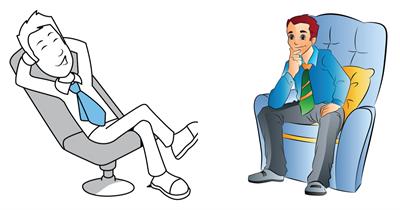
George and Harris
After hearing the statement from the narrator, the two friends quickly agreed with the narrator, and their sudden decision made the narrator feel weird about them. They accepted the offer quickly to get rid of packing. Usually, packing things might be a difficult task. Before packing, the items should be listed in order. In case if things get misplaced, it will irritate one’s mood. So while packing things, one needs the patience to sort out the things in the right place. With these considerations in mind, George and Harris left the packing matter entirely to the narrator. Feeling that they had escaped from the most hectic job, they both thought of resting for a while. George relaxed comfortably in the easy chair. Meanwhile, Harris sat on the sofa with one leg crossed over the other and his feet on the table. They both sat leisurely to watch or comment on the narrator when he did anything wrong.
On the other hand, the narrator did not think that his two friends would sit simply. By saying that he would pack, the narrator did not mean that his friends could sit and relax while he was doing all the work. He had meant that he would take control over the job and make them do their respective works. Also, the narrator would say now and then, “Oh, you!” “Here, let me do it.” “There you are, simple enough!”. It means that whenever his friends were not doing their work correctly, he’d interrupt in between and tell them this is not the right way of packing. Also, he would tell them that he would do the packing. This does not indicate that the narrator will complete the task. He was using a strategy to persuade his friends to complete their tasks. On the contrary, nothing had happened as he expected. As a result, he was irritated by the way his friends understood it.
The narrator then told his audience that nothing frustrates him more than seeing other people doing nothing while he was working. Sometimes, some people do not do their tasks perfectly, and they would rely on others. Doing things by ourselves is more satisfying than handing our responsibilities to others. From the above paragraphs, one can understand that the narrator’s friends were lazy in doing their jobs, and they completely threw the packing work to the narrator.
On the other hand, the narrator did not think that his two friends would sit simply. By saying that he would pack, the narrator did not mean that his friends could sit and relax while he was doing all the work. He had meant that he would take control over the job and make them do their respective works. Also, the narrator would say now and then, “Oh, you!” “Here, let me do it.” “There you are, simple enough!”. It means that whenever his friends were not doing their work correctly, he’d interrupt in between and tell them this is not the right way of packing. Also, he would tell them that he would do the packing. This does not indicate that the narrator will complete the task. He was using a strategy to persuade his friends to complete their tasks. On the contrary, nothing had happened as he expected. As a result, he was irritated by the way his friends understood it.
The narrator then told his audience that nothing frustrates him more than seeing other people doing nothing while he was working. Sometimes, some people do not do their tasks perfectly, and they would rely on others. Doing things by ourselves is more satisfying than handing our responsibilities to others. From the above paragraphs, one can understand that the narrator’s friends were lazy in doing their jobs, and they completely threw the packing work to the narrator.
Later, the narrator recollected an incident that happened previously in his life. He told his readers about the incident to understand how irritated he was by his friends' actions. The narrator mentioned that he lived with a man earlier who had troubled him like his friends. He went on to say that the man would sit or lie on the sofa for hours together, watching him do all the work. While the narrator was asking him about looking at him, the man responded that it was fun to see him go around and do all the work in a confused state.

A man sitting on a sofa
After narrating the incident, the narrator said that he would not be the same person anymore. It means that he was not going to let anyone sitting simply and observing him. Also, he could not sit idle and watch others working as a slave. He liked to go around and give them instructions on how to complete the task. He also wished to wander around with his hands in his pockets, instructing them to do their jobs properly. He feels that he was an active young man, and it was a part of his nature to behave in that manner. Later the narrator didn't say anything to his friends and began packing. He thought packing was going to be a longer job than he expected.
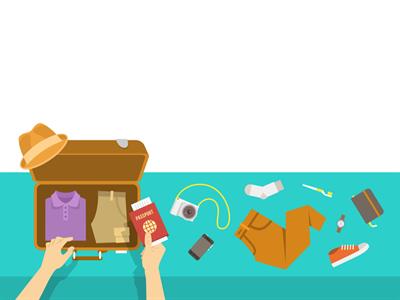
The narrator packing things
At last, the packing got over, and the narrator sat on the bag and started to close it. While he was closing it, he heard the voice of his friend. It was none other than Harris. He asked the narrator whether he was not going to put his boots inside the bag. Later, the narrator looked around and found that he had forgotten to pack the boots.
Then the narrator described his friend Harris to his readers. He said that this was the character of Harris. Harris would not tell anything on time, and he would postpone everything and convey them later. It would irritate the opposite person. But he was never bothered about that. Later, the narrator said that Harris did not utter a word earlier about the boots. He was observing everything from the beginning and sat silently with his legs crossed on the sofa. When the narrator began to strap the bag, he came out with a question of whether he had packed his boots in. It irritated the narrator.
Meanwhile, George laughed at the narrator. His laughter irritated the narrator to the peak, and he said to his readers that his laughter was meaningless. George laughed sarcastically at the narrator because the narrator was proud of his packing. As a result, when he forgot about the boots, George mocked him. If George had known how the narrator felt, he would not have laughed so hard. At last, both of their actions had made him feel so uncontrollable.
Then the narrator described his friend Harris to his readers. He said that this was the character of Harris. Harris would not tell anything on time, and he would postpone everything and convey them later. It would irritate the opposite person. But he was never bothered about that. Later, the narrator said that Harris did not utter a word earlier about the boots. He was observing everything from the beginning and sat silently with his legs crossed on the sofa. When the narrator began to strap the bag, he came out with a question of whether he had packed his boots in. It irritated the narrator.
Meanwhile, George laughed at the narrator. His laughter irritated the narrator to the peak, and he said to his readers that his laughter was meaningless. George laughed sarcastically at the narrator because the narrator was proud of his packing. As a result, when he forgot about the boots, George mocked him. If George had known how the narrator felt, he would not have laughed so hard. At last, both of their actions had made him feel so uncontrollable.
Later, the narrator opened the bag and kept the boots in it. While he was closing the bag, a terrible thought came to his mind. The thought was about his toothbrush. He had questioned himself whether he had packed his toothbrush along with his things. The narrator did not know how this thought rushed to his mind. Then the narrator told his readers that his toothbrush was an important thing that would lead him into trouble whenever he was travelling. Also, it would make him feel worried.
The narrator stated that he would have a horrible dream before the journey. He would wake up in between his sleep with a dream and cold sweat that he hadn't packed his toothbrush. Meanwhile, he would get up from the bed and search for it. After that, in the morning, he would put his toothbrush in his luggage before using it. After packing it, he'd recollect that he hadn't used it. So he'd take the things out from his bag and look for his brush. Also, the narrator said that the toothbrush was the last thing he would take from his bag. In addition, after taking it, he would forget to repack it. Finally, as he began to leave the house, he would remember that he hadn't taken the toothbrush. So he would run to the upstairs, carry the toothbrush wrapped up in his pocket-handkerchief, and move towards the railway station.
After thinking about the previous incidents about the toothbrush, the narrator thought that he had to unpack the bag again to find the toothbrush. Unfortunately, he couldn't find the brush. Later he searched for the toothbrush by moving things around carelessly and looking into, under, and behind them.
The narrator stated that he would have a horrible dream before the journey. He would wake up in between his sleep with a dream and cold sweat that he hadn't packed his toothbrush. Meanwhile, he would get up from the bed and search for it. After that, in the morning, he would put his toothbrush in his luggage before using it. After packing it, he'd recollect that he hadn't used it. So he'd take the things out from his bag and look for his brush. Also, the narrator said that the toothbrush was the last thing he would take from his bag. In addition, after taking it, he would forget to repack it. Finally, as he began to leave the house, he would remember that he hadn't taken the toothbrush. So he would run to the upstairs, carry the toothbrush wrapped up in his pocket-handkerchief, and move towards the railway station.
After thinking about the previous incidents about the toothbrush, the narrator thought that he had to unpack the bag again to find the toothbrush. Unfortunately, he couldn't find the brush. Later he searched for the toothbrush by moving things around carelessly and looking into, under, and behind them.

The narrator unpacked the things
On the other hand, the narrator found Harris and George's toothbrushes over eighteen times. It suggests that the narrator had unpacked the things repeatedly and could not find his own. The narrator made the statement since he couldn't use his friends' toothbrushes and had to keep looking for his own. Then he reassembled the items one by one, holding everything up and shaking it. Meanwhile, the narrator finds his toothbrush inside a boot. He started to repack his bag again.

George and Harris's toothbrushes
When the narrator finished packing, George asked him whether he had kept soap inside the bag. Hearing this, the narrator became enraged and stated that he didn't care if the soap was there or not. The narrator made the statement because he was utterly fed up with packing and, both of them started questioning him about whether he had taken this or not. Later, he shut the bag even louder and started tying it.
While tying the bag, the narrator realised that he had kept his spectacles inside the bag. So he decided to reopen the bag to take it out. He thought of taking his spectacles out because he needed to use them. Finally, the narrator closed the bag at 10.05 p.m.
While tying the bag, the narrator realised that he had kept his spectacles inside the bag. So he decided to reopen the bag to take it out. He thought of taking his spectacles out because he needed to use them. Finally, the narrator closed the bag at 10.05 p.m.

The narrator got his spectacles
After packing the necessary items like clothes, brushes, and boots, there remained the other things to pack. He had to pack the hampers. The word "hamper" refers to a basket with a carrying handle and a hinged lid used for food, cutlery, and plates on a picnic. They needed to bring it with them on their journey for personal usage.
Meanwhile, Harris interrupted in between and said that they did not have enough time for packing. Also, he stated that they had only less than twelve hours to start their journey. After telling about the time, Harris told the narrator to leave the remaining packing to him and George. Later the narrator agreed with Harris and George and asked them to do the remaining chores, and he sat down to rest for a while.
Harris and George started packing in a cheerful way to show how to pack in a better way. While reading the story, one can understand that George and Harris wanted to prove their packing as best. Also, they wanted to show the narrator that they were better than him. The most important thing to observe was that the narrator had packed the items without the assistance of anyone else. Meanwhile, Harris and George were supporting each other and doing their works. Let's see how both the friends were packing and who was the best packer.
Later, the narrator did not speak anything while they were packing. He simply sat and watched them. His silence was because he was completely tired of packing or wanted to see how well they were packing. The narrator knew that compared to George and Harris, he considered Harris the worst packer in the world. So he waited for them to create a mess while packing things. Later, the narrator looks at the piles of things that were kept for packing. The things that had to be packed into the hampers were plates, cups, kettles, bottles, jars, pies, cakes, tomatoes, etc. Then he felt that the whole place and situation was going to be very soon more interesting. He thought so because he knew how well they do their packing. So he waited in eagerness to have some fun with their packing skills.
The narrator's wish had come true. What he expected had happened. Both of them started their packing by breaking a cup. The narrator says that they broke the cup to indicate what they were capable of and make things more interesting. He said it sarcastically to emphasise how poor their packing was and how their overconfidence had caused them to fail at the start of the process.
After packing the necessary items like clothes, brushes, and boots, there remained the other things to pack. He had to pack the hampers. The word "hamper" refers to a basket with a carrying handle and a hinged lid used for food, cutlery, and plates on a picnic. They needed to bring it with them on their journey for personal usage.
Meanwhile, Harris interrupted in between and said that they did not have enough time for packing. Also, he stated that they had only less than twelve hours to start their journey. After telling about the time, Harris told the narrator to leave the remaining packing to him and George. Later the narrator agreed with Harris and George and asked them to do the remaining chores, and he sat down to rest for a while.
Harris and George started packing in a cheerful way to show how to pack in a better way. While reading the story, one can understand that George and Harris wanted to prove their packing as best. Also, they wanted to show the narrator that they were better than him. The most important thing to observe was that the narrator had packed the items without the assistance of anyone else. Meanwhile, Harris and George were supporting each other and doing their works. Let's see how both the friends were packing and who was the best packer.
Later, the narrator did not speak anything while they were packing. He simply sat and watched them. His silence was because he was completely tired of packing or wanted to see how well they were packing. The narrator knew that compared to George and Harris, he considered Harris the worst packer in the world. So he waited for them to create a mess while packing things. Later, the narrator looks at the piles of things that were kept for packing. The things that had to be packed into the hampers were plates, cups, kettles, bottles, jars, pies, cakes, tomatoes, etc. Then he felt that the whole place and situation was going to be very soon more interesting. He thought so because he knew how well they do their packing. So he waited in eagerness to have some fun with their packing skills.
The narrator's wish had come true. What he expected had happened. Both of them started their packing by breaking a cup. The narrator says that they broke the cup to indicate what they were capable of and make things more interesting. He said it sarcastically to emphasise how poor their packing was and how their overconfidence had caused them to fail at the start of the process.

Broken cup
Later, Harris placed the jar of strawberry jam on top of the tomatoes. The tomatoes were crushed due to the jam bottle's excessive weight. The tomatoes were wasted because their skin was light, and they would be damaged easily. Then, with the help of a spoon, they both removed the smashed tomatoes. From the two incidents, the readers can understand that both were only good at showing off and not good at packing.
The narrator continued narrating the atrocities done by his friends Harris and George. At first, he narrated about Harris's packing skill. Later, the narrator describes George's packing skills. It was George's turn and what he did was the most exciting stuff. George stepped on the butter. The narrator came over and sat on the edge of the table and watched their packing. The narrator didn't help them at that moment, and it irritated his two friends. As a result of it, they became nervous and stepped on things. They kept the things behind them, and later, when they wanted them, they could not find them. Usually, people would forget things whenever they were in anxiety. They would keep the things in one place and would search for them in the other place. The two of them were already nervous because their packing went highly wrong. Later, they placed the pies on the bottom and kept heavier things on them. As a result, the pies got smashed.
In addition to the smashing of pies, George and Harris poured salt over everything. Then the narrator said that they had spoilt the butter too. After seeing the messy things, the narrator said that he had not seen anyone creating so much mess with a small piece of butter worth one and two pence. Later, George took the butter from his slipper. Then they tried to put it inside the kettle. Finally, they tried their best to bring it out and put the butter on a sitting chair. Later, Harris sat over it, and the butter stuck over his back. At last, they went around the room looking for that piece of butter.
In addition to the smashing of pies, George and Harris poured salt over everything. Then the narrator said that they had spoilt the butter too. After seeing the messy things, the narrator said that he had not seen anyone creating so much mess with a small piece of butter worth one and two pence. Later, George took the butter from his slipper. Then they tried to put it inside the kettle. Finally, they tried their best to bring it out and put the butter on a sitting chair. Later, Harris sat over it, and the butter stuck over his back. At last, they went around the room looking for that piece of butter.
While George and Harris were searching for the piece of butter, they couldn’t find it anywhere. George looked keenly at the empty seat, and he was so sure that he had placed it on the chair. Later, Harris agreed that he too saw George placing the butter not a minute ago. They searched for it once again in the room. Finally, they met in the middle of the room empty-handed and stared at each other.
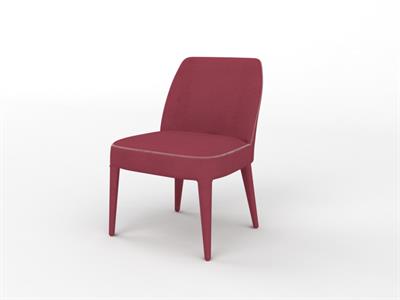
George stared at an empty seat
Later, George said that the disappearance of the butter was the most astonishing thing that he had ever heard in his life. Also, Harris said that the disappearance of the butter was a mystery. Then George moved around the back of Harris and noticed that the butter was sticking to his back. After seeing that, George exclaimed in anger why it had been there all this while. His anger might be because they had searched for the piece of butter all over the room, but they couldn’t find that. A small piece of butter had made them feel more irritated and wasted a lot of their time.
Meanwhile, Harris turned around and asked George where it was. Later, George moved to Harris’s back and asked him to stand still in an annoying tone. They removed the butter from the back of Harris and packed it inside the teapot.
Then the narrator introduces another character called Montmorency. It was the narrator’s pet dog. Montmorency was also present throughout the mess created by George and Harris. Montmorency aimed to interrupt everyone and then get scolded for it. It would crawl around in a place where he was not needed. Also, he would make people angry over him, and he liked to get things thrown at his head. After getting everything desired, Montmorency would feel that its day had not been wasted. Montmorency aimed to get people to fall over him and scold him for almost an hour. The statement implies that the dog likes to play with people. The dog feels that he has fulfilled his aim and would be proud of his achievement by doing messy things.
Then the narrator introduces another character called Montmorency. It was the narrator’s pet dog. Montmorency was also present throughout the mess created by George and Harris. Montmorency aimed to interrupt everyone and then get scolded for it. It would crawl around in a place where he was not needed. Also, he would make people angry over him, and he liked to get things thrown at his head. After getting everything desired, Montmorency would feel that its day had not been wasted. Montmorency aimed to get people to fall over him and scold him for almost an hour. The statement implies that the dog likes to play with people. The dog feels that he has fulfilled his aim and would be proud of his achievement by doing messy things.

Montmorency
Montmorency came near to them and sat down on the things to be packed for the trip. Also, Montmorency had a strong belief that whenever Harris and George reached out for their hands for anything, it would think that they were stretching out for his "cold, damp nose" and would bring it forward for them. Usually, dogs will behave in the same manner because they want to play with others. So they would come near people by thinking that they had called him.
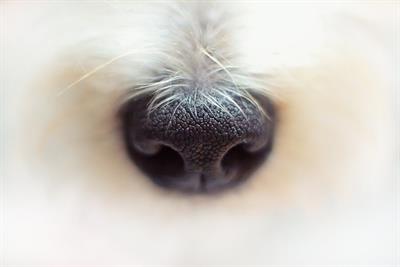
Dog's cold damp nose
Later, Montmorency put its legs into the jam. It shook the teaspoons and acted as if the lemons were rats and stepped into the hamper to kill these rats. According to Montmorency, the lemons appeared like rats. So before Harris came to hit him with a frying – pan, Montmorency killed the three lemons, assuming them as a rat. Here the word "killed" used in a sense of destroying it.
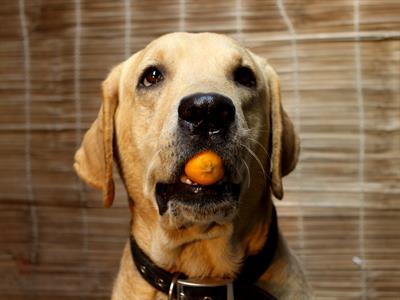
Montmorency thought of lemon as rats
After seeing the behaviour of Montmorency, Harris blamed the narrator. Harris said he was the cause for all the problems because he had encouraged Montmorency to make all this mischief. Usually, if a dog commits any wrong or mischief, its owner would be accused of that. People would question the owner because he was the one responsible for its mistake. After hearing the statement of Harris, the narrator stated that it was not his fault and he did not encourage him. Also, he stated that a dog did not need any encouragement to do things in its desired way. In addition, he stated that it was the natural character of the dog. The dog was born to act like that. The reason behind the statement was that each God's creations had its way of living. Likewise, dogs, cats and other animals will commit mistakes because they are born to do such activities. And they did not know what was right or wrong. They usually do things to make it fun.
Finally, the packing of George and Harris got over by 12. 50. Later, Harris rested for a while on the big hamper and said that hopefully, nothing would break in it. At that moment, George said that if anything was broken inside, let it be broken. He said to chill him because they were already tired and had no other way of cleaning. So George made the statement that whatever was going to happen or happened already, let it be, and nothing would change. Later, George said that he was ready to sleep since their packing got over as well. It was 12.50 am, and they had to take a short nap to continue their next day's trip. Meanwhile, the others also said they, too, were tired and went off to sleep. That night Harris wished to sleep with them because already it was midnight and tired, so he thought of spending the night at the narrator's home. At last, the narrator, George and Harris went upstairs to sleep.
Finally, the packing of George and Harris got over by 12. 50. Later, Harris rested for a while on the big hamper and said that hopefully, nothing would break in it. At that moment, George said that if anything was broken inside, let it be broken. He said to chill him because they were already tired and had no other way of cleaning. So George made the statement that whatever was going to happen or happened already, let it be, and nothing would change. Later, George said that he was ready to sleep since their packing got over as well. It was 12.50 am, and they had to take a short nap to continue their next day's trip. Meanwhile, the others also said they, too, were tired and went off to sleep. That night Harris wished to sleep with them because already it was midnight and tired, so he thought of spending the night at the narrator's home. At last, the narrator, George and Harris went upstairs to sleep.
Later, the narrator, George and Harris reached the bedroom. They flipped a coin to decide who would sleep with the narrator. They might have tossed out coins because three people couldn’t sleep in the same bed. As a result, it was finalised that Harris was going to sleep with the narrator. Then Harris asked Jerome whether he preferred to sleep inside or outside of the bed. At that moment, Jerome said that he preferred to sleep inside the bed. This seemed strange to Harris.
Then George asked Jerome and Harris at what time he had to wake them. Harris replied seven while Jerome wanted to wake up at six as he had to write some letters. Harris and Jerome had a bit of an argument in between. Then they discussed the time and finally settled on half-past six, each accommodating the time by half an hour.
Later, both of them said to George to wake them at half-past six. But George did not respond to their statement. It was because George had fallen asleep. Then, Harris and the narrator thought of leaving him to take a short nap. Meanwhile, the narrator and Harris made mischief by placing the bathtub next to George’s bed. They placed it near his bed to make him fall into it. The narrator’s and Harris intention was to make fun with George. Also, they knew that George would wake up at first, and when he came to their room to wake them, he would come with taking a bath. After making the arrangements, the narrator and Harris went to sleep.
Then George asked Jerome and Harris at what time he had to wake them. Harris replied seven while Jerome wanted to wake up at six as he had to write some letters. Harris and Jerome had a bit of an argument in between. Then they discussed the time and finally settled on half-past six, each accommodating the time by half an hour.
Later, both of them said to George to wake them at half-past six. But George did not respond to their statement. It was because George had fallen asleep. Then, Harris and the narrator thought of leaving him to take a short nap. Meanwhile, the narrator and Harris made mischief by placing the bathtub next to George’s bed. They placed it near his bed to make him fall into it. The narrator’s and Harris intention was to make fun with George. Also, they knew that George would wake up at first, and when he came to their room to wake them, he would come with taking a bath. After making the arrangements, the narrator and Harris went to sleep.